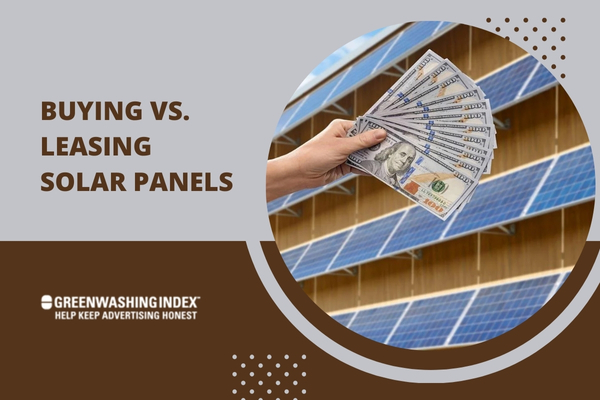When considering solar energy solutions, the decision between leasing or buying solar panels can significantly impact your financial and environmental future. Each option presents unique advantages and challenges that can shape your experience with renewable energy.
With rising energy costs and increasing awareness of sustainability, many homeowners are exploring which route offers the best long-term benefits. Whether you’re looking for immediate savings or a lasting investment, understanding these choices is essential to making an informed decision.
Deciding your Solar Journey
The journey of solar energy has been transformative, evolving from ancient practices to a modern cornerstone of renewable energy. As the world grapples with climate change and the need for sustainable solutions, solar power stands out as a clean and abundant resource.
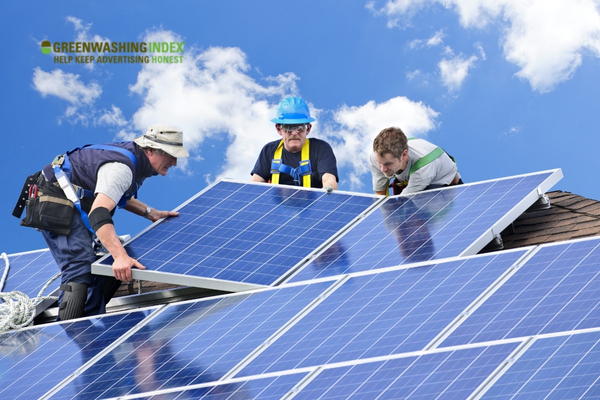
This overview will guide you through the key milestones in the history of solar panels, their technological advancements, and their role in shaping a sustainable future.
The Timeline of Solar Energy Development
- 7th Century BC: The earliest uses of solar energy began.
- 1839: Alexandre Edmond Becquerel discovered the photovoltaic effect.
- 1954: Bell Labs introduced the first practical photovoltaic solar cell.
- 1982: The commissioning of the first major solar power plant in the Mojave Desert marked a significant milestone.
- 21st Century: Rapid advancements in technology led to widespread adoption and innovation in solar energy solutions.
Bright Beginnings: Solar energy’s roots trace back to ancient civilizations that utilized sunlight for warmth and light. The formal study began in the 19th century, culminating in Becquerel’s discovery, which laid the groundwork for modern solar technology. This era marked the inception of solar cells, paving the way for future innovations.
The Big Breakthrough: The introduction of practical photovoltaic cells by Bell Labs in 1954 was a turning point. Initially costly, these cells became more affordable and efficient over time, enabling their use in various applications, including satellites during the 1960s.
The True Rise of Solar Panels: In the mid-1970s, environmental concerns and oil crises spurred interest in solar technology. The establishment of the Mojave Desert power plant in 1982 signified a crucial advancement, making solar energy more accessible to both governments and consumers.
Upgradation and Innovation: The 21st century has witnessed remarkable technological advancements, including improved materials and manufacturing processes. Innovations such as thin-film solar cells have expanded capabilities while reducing reliance on fossil fuels. Rooftop installations have become common, catering to both residential and commercial sectors.
The evolution of solar panels reflects human ingenuity in pursuing sustainable energy solutions. From its humble beginnings to becoming a global leader in renewable energy, solar power represents a bright future for clean energy. As we harness the sun’s potential, solar panels are not just power sources; they symbolize hope for a cleaner planet.
Also Read: Solar Batteries Essentials: Top Tips for Savvy Shoppers!
Leasing vs Buying Solar Panel: The Initial Considerations
When considering the transition to solar energy, homeowners often face a crucial decision: whether to lease or buy solar panels. Each option presents distinct advantages and disadvantages, influencing both immediate financial implications and long-term benefits.
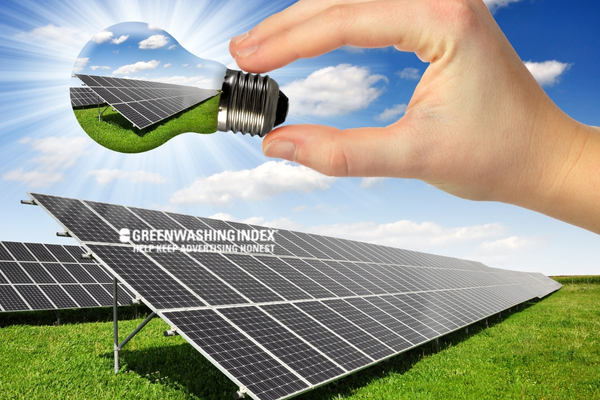
These factors is essential for making an informed choice that aligns with your energy needs, financial situation, and future plans. Below is a comprehensive overview comparing leasing and buying solar panels, focusing on key initial considerations.
| Aspect | Leasing Solar Panels | Buying Solar Panels |
|---|---|---|
| Definition | Contract to use solar panels without ownership | Outright purchase of solar panels |
| Initial Costs | Little to no upfront investment | High upfront costs |
| Monthly Payments | Fixed monthly lease payments | Possible loan payments or no payments after payoff |
| Maintenance | Included in lease agreement | Owner is responsible for maintenance |
| Long-Term Savings | Generally lower savings over time | Higher long-term savings after initial costs |
| Property Value Impact | Does not increase property value | Increases property value and equity |
| Control Over System | Limited choice of brands/models | Full control over system choice and upgrades |
| Tax Incentives | Typically not eligible for tax credits | Eligible for federal tax credits and incentives |
Initial Costs
- Leasing: Typically requires little to no upfront investment, making it financially accessible for many homeowners. Monthly payments are fixed, allowing for easier budgeting without the burden of a large initial expense.
- Buying: Involves significant upfront costs, including the purchase price of the panels, installation fees, and necessary permits. This can range from several thousand dollars to over $10,000 depending on the system size and installation specifics.
Ownership
- Leasing: The leasing company retains ownership of the solar panels. Homeowners benefit from using the energy generated but do not own the system, which means they cannot claim tax credits or other incentives associated with ownership.
- Buying: Homeowners gain full ownership of the solar system, allowing them to benefit from tax incentives and increased property value. This ownership also provides flexibility to modify or expand the system as desired.
Maintenance Responsibilities
- Leasing: Maintenance and repairs are typically covered by the leasing company, relieving homeowners of ongoing maintenance responsibilities and costs.
- Buying: Homeowners are responsible for all maintenance and repair costs, which can add up over time. However, they have control over how and when maintenance is performed.
Long-Term Financial Implications
- Leasing: While leasing offers lower initial costs, it may result in higher overall expenses over time due to ongoing monthly payments. Lease agreements may also include escalations that increase payments as costs rise.
- Buying: Although purchasing requires a larger initial investment, it generally leads to greater savings in the long run as homeowners eliminate or significantly reduce their electricity bills after paying off the system.
In both leasing and buying solar panels have their unique benefits and challenges. The decision ultimately hinges on individual financial situations, long-term home ownership plans, and personal preferences regarding ownership and maintenance responsibilities.
Also Read: Solar Power Basics: Unlock Clean Energy Mysteries!
The Financial Implications of Buying vs Leasing Solar Panels
When considering solar panels, one of the most critical decisions is whether to buy or lease them. Each option has distinct financial implications that can significantly affect your overall savings and investment.
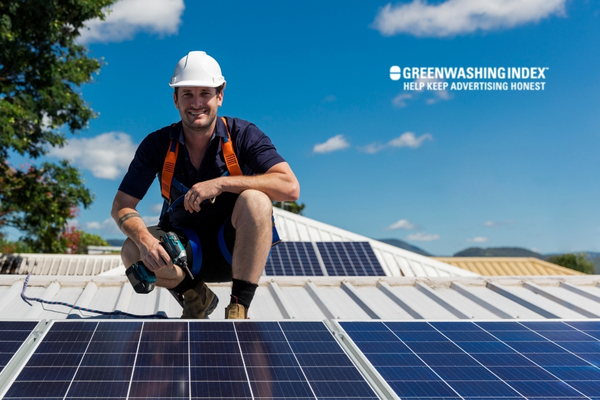
Evaluating Upfront Investments
Buying Solar Panels:
- Initial Costs:
- Purchasing solar panels requires a substantial upfront investment, often ranging from $15,000 to $60,000, depending on the system size and installation costs. This one-time payment covers the panels, installation, and any necessary permits.
- Financing Options:
- For many homeowners, financing through solar loans can alleviate the burden of upfront costs. These loans are specifically designed for solar installations and may offer favorable terms.
Leasing Solar Panels:
- Low Initial Costs:
- Leasing typically involves little to no upfront payment. Homeowners pay a fixed monthly fee, similar to renting, which makes it an accessible option for those who may not have significant savings.
- Budget Considerations:
- When deciding between buying and leasing, assess your current financial situation. If you have sufficient savings for an outright purchase, that may be preferable; otherwise, monthly lease payments might be more manageable.
Calculating Long-Term Payoffs
Buying Solar Panels:
- Long-Term Savings:
- Over time, owning solar panels can lead to substantial savings on electricity bills since sunlight is free. Once the system is paid off, ongoing energy costs can be minimal.
- Tax Incentives:
- Homeowners who purchase solar panels are often eligible for tax credits and incentives, such as a 30% federal tax credit, which can significantly offset initial costs.
Leasing Solar Panels:
- Electricity Savings:
- While leasing can reduce energy costs due to typically lower rates offered by leasing companies, the savings may not be as significant as those from ownership. Additionally, tax incentives generally go to the leasing company rather than the lessee.
- Lease Terms Impact:
- At the end of a lease term, if there’s no purchase option included in the contract, any accumulated savings may be lost when the lease expires.
Purchasing solar panels tends to provide better long-term financial benefits and control over your energy system. However, leasing offers a lower barrier to entry for those who cannot afford large upfront costs or prefer predictable monthly payments. Ultimately, your choice should align with your financial situation and long-term home ownership goals.
Also Read: Solar Panel Lifespan Secrets: Maximize Your Investment!
Ownership Aspects of Buying vs Leasing Solar Panels
When it comes time to decide between buying vs. leasing solar panels, one of the biggest points to consider is who actually owns the solar panels. This can have a big impact on your experience with solar energy.
Who Holds the Power? (Ownership)
When you buy solar panels:
- You are the owner.
- The solar panels are yours once you pay for them.
- They belong to your home, and they add value to it as an improvement.
In contrast, when you lease solar panels:
- A company owns them.
- You pay a fee to use them every month or year.
- They are not part of your home in the same way as something you own would be.
Here’s how that looks:
If You Buy:
- You Own Them: Think of buying like getting a puppy. Once you buy it, it’s all yours, no question about it.
- Value Goes Up: Just like a new kitchen makes your house worth more, so do owned solar panels.
- Sell Anytime: If one day you want to sell your house, those solar panels go along with it — and might make buyers happy.
If You Lease:
- Company Owns Them: It is more like renting an apartment; someone else owns it while you live there (or use the panels).
- No Extra Value: Since they’re not really yours, they don’t up your home’s worth on paper.
- Lease Stays With House: If selling time comes while under lease, new buyers need to agree on taking over that lease — which can be tricky!
Maintaining Your Investment
Understanding maintenance is key, too, when comparing buying vs. leasing because whoever owns those shiny panels is usually in charge of taking care of them.
For Buyers:
- It’s On You: Like most things one owns – if something breaks or needs routine care – that’s on the owner (that’s you!).
- Freedom To Choose: Want someone specific for repairs? Go right ahead — pick any service provider fitting your needs and budget.
Here’s what that involves:
- Clean Them: Keep those panels spotless for top power-making performance!
- Routine Checks: Regular checks help catch small issues before they become big problems.
But what if leasing?
For Leasers:
- Company Does It: Usually, peace of mind comes included with leases since the owning company tackles repairs and upkeep — remember, though, this doesn’t mean absolutely no effort from your side!
2. The Lease Terms Matter: Always look at that fine print; know what exactly ‘maintenance’ includes in a lease agreement – better safe than sorry!
A closer look:
- Worry Less? Often, companies monitor and maintain their units closely since, after all – they still own ‘em!
- Specific Agreements Determine Scope: Every lease is different, so ensure awareness about who will handle fallen branches or snow removal, among other possible needs.
Also Read: Solar Generator Insights: Can It Really Power Your Home?
Impact on Property Value & Freedom of Choice
The prospect of home ownership remains a foundational element in the pursuit of personal wealth and stability. The decision to own property can significantly impact an individual’s financial portfolio and long-term plans. Owning real estate not only provides a sense of personal achievement but also offers the potential for property value appreciation over time.
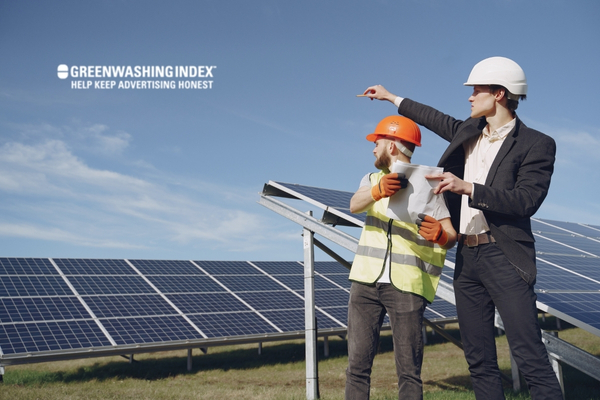
Enhancing Home Value with Ownership
When you think about buying solar panels, one big point is how they can make your house worth more. Here’s why:
- Long-Term Investment: Solar panels can be a smart money choice for the future. Just like fixing your kitchen or adding a room, solar panels are home improvements. They make your house more modern and attractive to buyers if you decide to sell.
- Lower Energy Bills: Everyone likes to save money, right? Solar panels help you save on electricity costs because the sun’s power is free once you’ve paid for the set-up.
- Eco-Friendly Feature: Now more than ever, people care about the earth. A home with solar panels shows that it’s helping, not hurting, our planet.
- Solar Incentives: Some places give you special benefits like tax credits when you own solar panels. It’s their way of saying thanks for being nice to the environment.
- No Leasing Contracts on Your House: Buying means they’re yours forever – no lease contracts tied to your house.
- Freedom from Rising Energy Costs: When energy prices go up, your cost stays the same because sunshine is always free.
- Increased Resale Value: Here’s a big one – studies show houses sell for more when they have solar panel systems in place.
So, in simple words, buying solar means a happier wallet when it comes time to pass on your keys to someone new.
Selecting Solar Solutions When Leasing or Buying
Now, let’s talk freedom – choosing exactly what kind of solar setup fits best on top of your roof!
- Types: Every home is different, and so are families’ needs – maybe you want just enough energy for a few appliances or maybe lots! When buying vs leasing solar panels, owning them gives you a chance to pick just the right ones that match your energy use.
- Brands: There are many brands out there – some are known for lasting long, while others might be better at making lots of power even on cloudy days.
- Control Over Choices: As an owner:
- You say yes or no to each part.
- Pick the service company that feels trustworthy and has good value.
- If technology gets better down the line, swap old parts out without asking permission from a leasing company.
If leasing:
- Options might be fewer – leasing companies often have certain kinds they offer and stick with those only.
- Changing things could get tricky; sometimes, rules are saying ‘no changes allowed’ until lease time ends.
Just remember: Buying vs leasing solar panels isn’t just about who owns shiny things on top of your house but also about being able to lead decisions that fit best for you!
Also Read: Solar Panels Investment: Is It Really Worth Your Money?
Legalities and Permissions When Buying or Leasing Solar Panels
When considering the installation of solar panels for your home, it’s essential to understand that the decision involves more than just choosing between buying or leasing. Various legal requirements and permissions must be navigated for both options. This overview highlights the key legal aspects and permissions necessary for solar panel installation.
Guiding Zoning Laws & HOA Regulations
Understanding Zoning Laws: Zoning laws dictate what modifications can be made to properties and vary significantly by location. Before proceeding with solar panel installation, homeowners should:
- Check Local Zoning Laws: Investigate local regulations regarding solar panel installations. Some jurisdictions may have restrictions on the height or placement of panels on roofs.
- Obtain Necessary Permits: Installing solar panels typically requires permits, especially if it alters the structure of your home. Ensure all permits are secured before beginning any installation work.
- Follow Homeowners Association (HOA) Rules: If your property is within an HOA, be aware that they may impose additional regulations on solar installations. These might include specific locations for panels or aesthetic guidelines to maintain neighborhood uniformity.
Leasing Considerations: When leasing solar panels, the leasing company may assist with obtaining permits. However, it is crucial to confirm who holds responsibility for compliance with legal requirements.
- Inform Your Utility Company: Notify your utility provider about your solar installation, as they may have specific requirements or documentation needed for generating your own power.
- Understand Exit Terms: If you lease solar panels, clarify the terms regarding termination of the lease, especially if you plan to move. Some leases may entail obligations that need to be fulfilled before exiting.
These considerations are vital to avoid potential legal issues after installing solar panels. Whether you choose to buy or lease, understanding and adhering to these regulations ensures a smoother transition into renewable energy use.
Key Takeaways
- Zoning Laws: Research local zoning regulations before installation.
- Permits: Secure all necessary permits prior to starting work.
- HOA Compliance: Check HOA rules that may affect panel placement and aesthetics.
- Leasing Responsibilities: Clarify responsibilities regarding permits and legal compliance when leasing.
- Utility Notification: Inform your utility company about your solar setup.
- Exit Terms: Understand the conditions for terminating a lease agreement if you decide to move.
By addressing these legal aspects early in the process, homeowners can enjoy the benefits of solar energy without unnecessary complications.
Long-Term Commitment Perspective
When considering the choice between buying and leasing solar panels, it can be viewed as a decision between a long-term commitment and a more flexible arrangement.
Purchasing solar panels is akin to entering a marriage; it signifies a long-term investment where the panels become your property permanently, indicating a commitment to solar energy for the foreseeable future.
Breaking Down Lease Agreements
When I think about buying vs. leasing solar panels, I see it as choosing between a long-term commitment and something more flexible. Buying solar panels is like getting married to them. It usually means these panels are mine for good, and I am in it for the long haul. Now, let me talk about what leasing agreements look like. Imagine renting an apartment; that’s somewhat similar to leasing solar panels.
- Length of the Lease: Most times, a lease agreement for solar panels can last around 20 to 25 years. This is important because my energy needs could change over time, and so could technology or my living situation.
- Monthly Payments: Think of this like a subscription service — I pay a set amount every month to keep using the solar panels.
- Escalation Rate: Some contracts have what’s called an escalation rate, which means each year the monthly payment gets a little higher.
- Installation Costs: With leasing, I usually don’t have to worry about paying up front to put the panels on my roof; they often cover that part.
- Maintenance Responsibilities: One perk is that maintenance isn’t on me; if something goes wrong with the panels, they should fix them at no extra cost to me.
- Moving Out: If I decide to move before my lease is up, things can get tricky. Some agreements let me transfer the lease to the new homeowner or even move my leased system with me!
- Buyout Options: Sometimes, there’s an option included where I can buy out the rest of my lease early if I want ownership of those shiny energy-catchers all to myself sooner rather than later.
- End-of-Lease Terms: Approaching end-of-lease terms begins another adventure — do I return the equipment? Renew? Or maybe by then, there’ll be an upgrade waiting for me!
- Performance Guarantee: A lot of leases guarantee that those hip-looking green machines will perform as promised or better – giving peace of mind regarding what sort of results they’ll be achieving on top of my house.
- Insurance Requirements: Don’t forget this one — some companies will want their gear insured since, technically, it’s still theirs while you keep a watchful eye on your property.
Considering each detail carefully while looking at these points ensures no surprises bite me down the road when deciding whether buying vs leasing solar panels fits best with my life plans!
Also Read: How Much Energy Does A Solar Panel Produce? Find Now!
Maintenance Responsibilities
Solar panels are an increasingly popular choice for homeowners looking to harness renewable energy. However, when deciding between purchasing or leasing solar panels, a crucial consideration is understanding the maintenance responsibilities associated with each option. This overview clarifies these responsibilities and highlights key aspects of maintenance obligations.
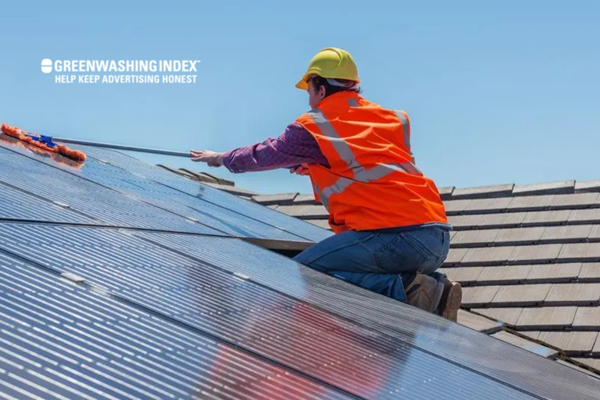
Who Will Fix It? Exploring Maintenance Obligations
When deciding between buying or leasing solar panels, understanding maintenance obligations is essential. It impacts not only your financial responsibilities but also your peace of mind. Knowing who handles repairs can influence your choice, as well as the long-term performance and reliability of your solar energy system.
If You Buy Solar Panels:
- Ownership Responsibility: When you purchase solar panels, you assume full responsibility for their maintenance and repair. This means any necessary repairs or upkeep will be your financial obligation.
- Warranty Coverage: Many solar panels come with a warranty that may cover certain repairs for a specified duration. It’s essential to review the warranty details to understand what is included.
- Potential Additional Costs: Be aware that if repairs are needed after the warranty period expires, you will incur additional costs for any necessary maintenance or repairs.
- Freedom to Choose Service Providers: Owning your solar system allows you to select your maintenance providers, giving you control over both costs and the quality of service.
If You Lease Solar Panels:
- Reduced Maintenance Worries: Leasing solar panels typically means that maintenance and repairs are handled by the leasing company, relieving you of these responsibilities.
- Lease Agreement Terms: The specifics regarding maintenance should be clearly outlined in your lease agreement, ensuring that the leasing company is responsible for addressing any operational issues.
- Regular Inspections Included: Many leasing companies provide regular inspections as part of their service package, which helps identify and resolve minor issues before they escalate.
- Response Time Clauses: Lease contracts often include clauses detailing how quickly the leasing company will respond to maintenance needs. It’s advisable to read these sections carefully to know what to expect in case of issues.
When considering whether to buy or lease solar panels, it is vital to evaluate how much responsibility you are willing to assume for maintenance and repairs both now and in the future.
Conclusion
When deciding whether it is better to lease or buy solar panels, several factors come into play. Leasing offers lower upfront costs and predictable monthly payments, making it an attractive option for many homeowners.
On the other hand, purchasing solar panels provides long-term savings and potential tax benefits. Evaluating your financial situation, energy needs, and long-term goals will help you make an informed decision. Ultimately, both options have their merits, and the right choice depends on individual circumstances and preferences.

